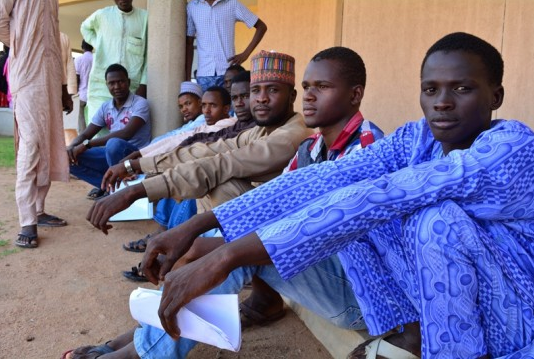UNDP Supporting Women CRSV and SGBV Survivors of Trauma
After a long process of a series training and consultations meetings which started in October 2017 targeting 114 female social workers in collaboration with the Iraqi Ministry of Labor and Social Affairs/ Directorate of women protection, UNDP started developing a national analytical report for women survivors of Conflict-Related Sexual Violence (CRSV) and Sexual and gender based violence (SGBV) in Iraq.
Through an advanced training on expressing writing and listening skills to collect women stories, social workers as first responders were capacitated on appropriate approaches for conducting interviews with survivors and how to handle potential challenges, such as the re-traumatization of survivors. These techniques enable women to share their stories, detail their needs, make their demands for rehabilitation and compensation in a sensitive and secure environment.
The next stage will be collecting stories by MOLSA social workers of women CRSV /SGBV survivors in Ninewah, Salahaldeen, Diyala, Anbar, Baghdad, Karbalaa, Babil, Misan, Kirkuk and Basrah. These stories will be analyzed to develop a national analytical report to be approved and adopted by the government. This report will be one of the resources that will inform efforts of the Iraqi government to strengthen its social protection and transitional justice policies.
H.E Minister Mohammad Shiaa Alsoudany said: “Iraqi women faced many challenges in life, hence the Government with all its institutions as well as the local and international community must stand with the Iraqi women, who represent patience, strength and willing to move forward in life, in their long and painful journey. He added that. Mr. Alsoudany stated, “Many women are exposed to violence and cannot speak out, which leads to psychological effects reflected on their families as well”.
UNDP’s Gender Specialist, Ms. Sundus Abbas said: “In Iraq, the biggest obstacle facing reconciliation is dealing with the past in ways that make a fresh start possible. Expressive Writing in Dealing with the Past is a key methodology in achieving community reconciliation in Iraq’s post-conflict environment which help increasing the well-being of groups at risk”. She added: “Women voices, roles and stories are often ignored; therefore, we came up with this initiative to reach out to a wider group of women and listen to their stories through our newly-established partnership with the MOLSA team of female social workers”.
Senior Undersecretary of the Ministry of Labor and Social Affairs Mr. Falih Al-Amiry highlighted that “social workers play an active role in showcasing what is happening within the society especially civilians that been subjected to violence”. adding that: “this kind of documentation is much needed now in Iraq especially in post liberation phase”.
Mrs. Uttor Almusawi, Director General of Women Social Protection Department at the Ministry of Labor and Social Affairs explained that, “women are the most targeted group in Iraq; therefore, we hope to be able to reach out to all women who have experienced violence through our teams of social workers across Iraq. With UNDP’s support, we count on this project to help women victims to document their stories and to draw lessons through this initiative for future use. We also want to record all stories of those who play an active role as peace builders in their communities. And we are interested, not only in individual stories, but also those of communities”. She added that: “This is one of our main responsibilities in the department of Women Social Protection”.
Bedaa Mohammed, a 36 years old social worker has been working in Baghdad for the last 7 years. She commented: “Women usually keep their stories and their communities’ stories in their hearts, especially when it refers to sexual violence. This is our role as social workers to help them in dealing with this dark past and document their stories. Expressive Writing in Dealing with the Past approach is a very important tool, especially in our current situation. This initiative gave me many new skills, and I feel that I can contribute with my colleagues in documenting Iraqi history”.
Though its Support to Integrated Reconciliation in Iraq Project, the UNDP is working in partnership with the Implementation and Follow-up Committee for National Reconciliation to develop, support and sustain civic participation in reconciliation and transitional justice processes at every level of society, with a focus on communities. The project is comprising three main pillars: 1) Public Awareness Raising 2) Local Peace mechanisms, processes and committees and 3) Documenting the experiences, needs and demands of Iraqi citizens for reconciliation with special emphasis on the redress of sexual and gender violence during previous conflicts.
(Source: UNDP)

